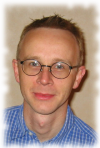
Lars Arvestad is Assistant Professor in Computer Science, teaching courses in programming concepts and Bioinformatics. His research interests are in computational methods for understanding molecular evolution and other areas of molecular biology. After his PhD at KTH, he worked in the pharmaceutical industry and the Karolinska Institutet before returning to KTH by joining the Stockholm Bioinformatics Center.

Erik Aurell is the Director of the Master Programme in Computational
and Systems Biology. He is Professor at KTH and heads the CBP
research group at KTH Computational Biology. His research focus is
on gene regulation, and on design and models of distributed systems
in dynamic environments. He was co-organizer of the Third International
Conference on Systems Biology (ICSB 2002, Stockholm).
Before joining KTH he worked in the Swedish IT industry, and has
been an visiting scholar/professor in France, Italy, Poland, Russia
and China.
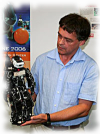
Örjan Ekeberg is Associate Professor in Computer Science since
1996. His research focus is on simulation models and computational
techniques for studying the interaction between neuronal circuits and
musculo-skeletal mechanics in the context of animal movement control.
He has been a Resident Fellow of the Institute of Advanced Study in
Berlin, and was recently awarded a price as best teacher of the
school.
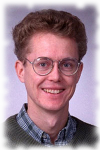
Erik Fransén is Associate Professor in Computer Science. He was a post doctoral fellow at the Department of Psychology at Harvard University in 1997-1998. His research includes studies on the ionic basis of cellular and network excitability and of working memory using biophysical modeling and simulation. He gives courses in modeling of biological systems and in artificial neural networks and related mashine learning techniques.
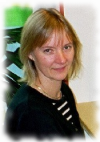
Jeanette Hellgren Kotaleski has a M.S. in Medical Sciences from Umeå University, a M.S. in engineering Physics from Royal Institute of Technology, and a Ph.D. in computer science on work focusing on modeling bursting mechanisms and coordination in motor systems. From 1999 to 2001 she was a postdoc at the Krasnow Institute, VA, USA, modeling biochemical pathways underlying classical conditioning. After returning to Sweden, she is now an associative professor at School of Computer Science and Communication, Royal Institute of Technology. Her main research interests cover modeling of motor systems, including studying the dynamics in intracellular signaling networks involved in learning and synaptic plasticity.
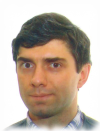
Alexander Kozlov received his Diploma in Radiophysics and Ph.D. in Physics and Mathematics from the University of Nizhny Novgorod, Russia, in 1989 and 1995, respectively. He is a research fellow at the Department of Neurophysiology, Karolinska Institute, and at the Computational Biology and Neurocomputing, Royal Institute of Technology, Stockholm. His research includes dynamics of locomotor nervous systems, abstract and realistic neuron modeling and large-scale simulations.
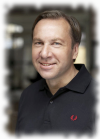
Jens Lagergren is Professor at KTH and heads the CBB research group at the Department of Computational Biology. He is also the Director of PhD studies at KTH School of Computer Science and Communication. His main interest are comparative genomics, gene regulation, and computational cancer research. He has an extensive international network and is a frequent program committee member of high profile bioinformatics and computational biology conferences.
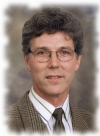
Anders Lansner is Professor in Computer science at Stockholm University and heads the CBN (Computational biology and Neurocomputing) research group at the Department of Computational Biology. His main interest is computational neuroscience and brain-inspired computation. He leads the computational neuroscience methodology platform at SBI (Stockholm Brain Institute) and the Swedish INCF-node in Neuroinformatics, and is currently partner of two European research consortia focused on theoretical and computational brain science. He has supervised more than ten PhD students in computer science with specialization towards computational neuroscience.

Petter Holme joined the Computational Biology group as Assistant Professor in September 2007. Previous to that he was Postdoctoral Fellow at the Department of Computer Science at University of New Mexico, and the Department of Physics, University of Michigan, USA. He has a PhD in Theoretical Physics from Umeå University, a MSc in Engineering Physics from Uppsala University and a MA in Chinese from Stockholm University, Sweden. Holme's research interests are, in general, modeling and analyzing complex systems, in particular he studies complex biological, social and technological networks.

Alf Rehn is Professor of Innovation and Entrepreneurship at KTH and holds a Chair of Management and Organization at Åbo Akademi University (Finland). He leads the Center for Industrial Entrepreneurship and Creativity (CINDEC), and supervises master's students in the Entrepreneurial Thesis-program as well as a series of PhD-students. His own research focuses on innovation and entrepreneurship in new markets and contexts and has been published in a wide variety of formats.